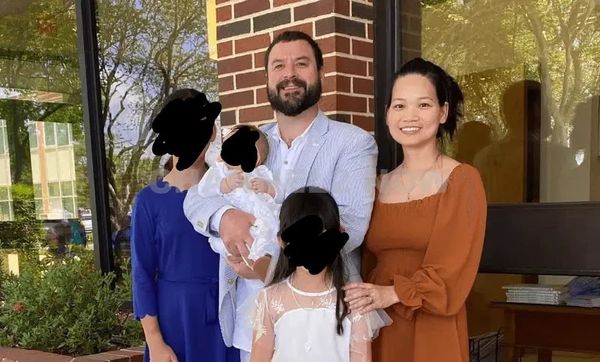A 70-year-old WA man whose mental illness was not properly treated for decades has been sentenced to life with a 12-year minimum for murdering his former wife's husband and attacking her after an argument about parking.
Antony Hardy, a well-known surfer in the Margaret River region, used a painter's pole to fatally strike 75-year-old David Graves at a property in the area in January 2018.
When Mr Graves's wife Jacqui tried to stop the attack, he hit her with the pole, breaking her elbow and one of her fingers.
Hardy had been staying at the Margaret River property which the couple owned, but he refused to live inside the house and instead slept in his car in the garage.
The living arrangements led to arguments between him and the couple over issues, such as him excessively pruning plants and refusing to water them.
The murder happened after Hardy took offence when Mr Graves asked him to move his car from the garden to the driveway,
Hardy was married to Ms Graves between 1973 and 1992 and their relationship ended because of his increasingly erratic behaviour.
The Supreme Court was told that during the marriage Ms Graves had sought help for her husband, and in the 1970s he was diagnosed with schizophrenia but was told nothing could be done.
Hardy had a successful surfboard-making business but it collapsed in the 1990s, and the court heard this had a severe impact on him.
Hardy's illness a 'diagnostic dilemma'
Justice Stephen Hall said in the ensuing years, Hardy's eccentric behaviour, which included cutting holes in bins to make it easier to dispose of rubbish and pruning bushes in public places, was tolerated by the Margaret River community.
However, by 2017 his family had noticed he was becoming more agitated, and that was when the Graves's offered to let him live at their property.
Justice Hall said all the doctors who had examined Hardy after the murder agreed his case was "a diagnostic dilemma" but it appeared to fall within the schizophrenic spectrum.
He said while the 70-year-old knew what he was doing when he attacked the couple, his mental illness had distorted his thoughts and impaired his ability to control his actions.
"It was a factor that led to these terrible events," Justice Hall said.
He described the victim impact statements provided by Ms Graves and the brother of Mr Graves as "heart-rending", adding that nothing he could say could encapsulate their suffering.
Hardy likely to spend most, if not all, remaining life in prison
Justice Hall said Mr Graves was older than Hardy, which made him vulnerable, and he was subjected to a sudden and unexpected attack, with no means to defend himself.
"This is truly a terrible offence and an awful sentencing exercise … the impact of your actions that day has been truly appalling," he told Hardy.
However Justice Hall said the murder happened while Hardy was suffering a mental illness that was never adequately treated.
Justice Hall urged prison authorities to ensure Hardy received treatment while in custody, saying that was his best chance of being granted parole when the time came.
However he acknowledged that given Hardy's age he was likely to spend "a good portion, if not all" of his remaining life in prison.
With time already served, Hardy will be first eligible for release in January 2030.







